European Union and International Reporting Standards Analysis
VerifiedAdded on 2022/11/26
|5
|871
|135
Report
AI Summary
This report examines the European Union's (EU) role as a supranational body in the convergence of international accounting standards. It highlights the EU's establishment through the Maastricht Treaty and its influence on financial reporting across its member states. The report discusses the EU's key financial institutions, including the European Central Bank (ECB), European Investment Bank (EIB), and European Investment Fund, and how they facilitate the implementation of International Financial Reporting Standards (IFRS). It emphasizes the importance of IFRS in promoting economic cooperation, transparency, and comparability of financial information. The report also explores how the adoption of IFRS benefits investors, facilitates financial analysis, and supports statutory bodies in revenue collection. It concludes that the EU's adoption of universal accounting standards has improved financial reporting, increased transparency, and enhanced economic performance within the region.
1 out of 5
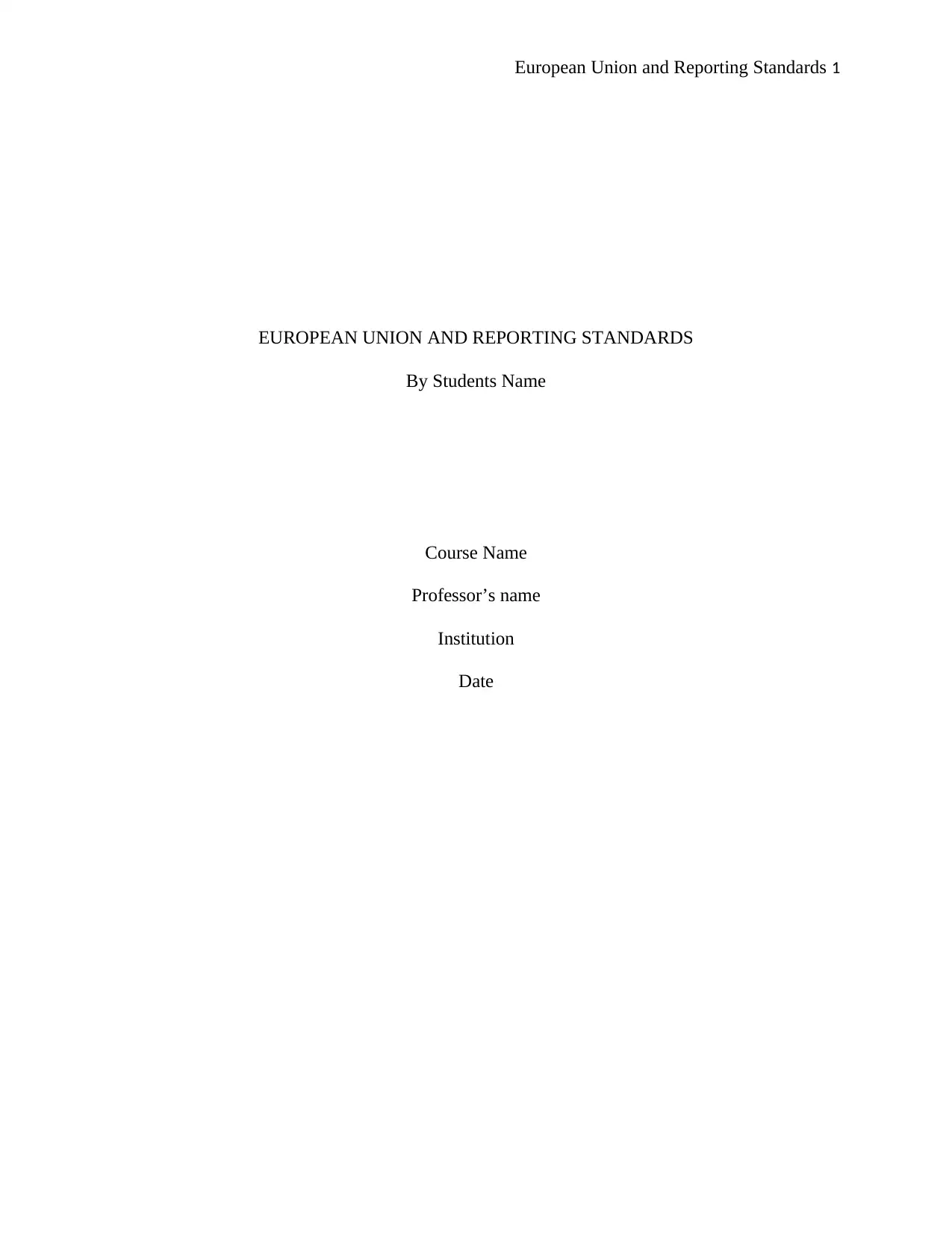
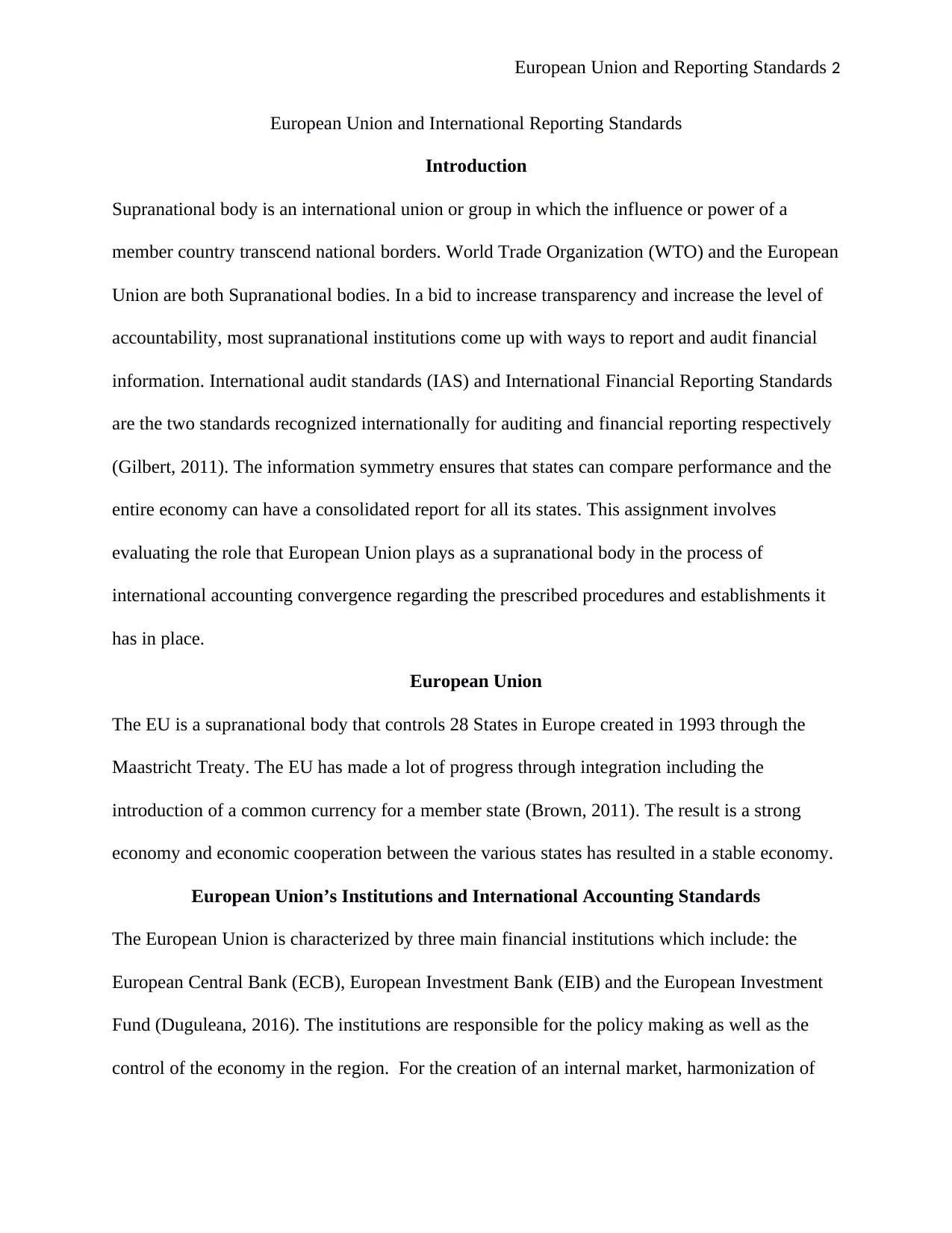
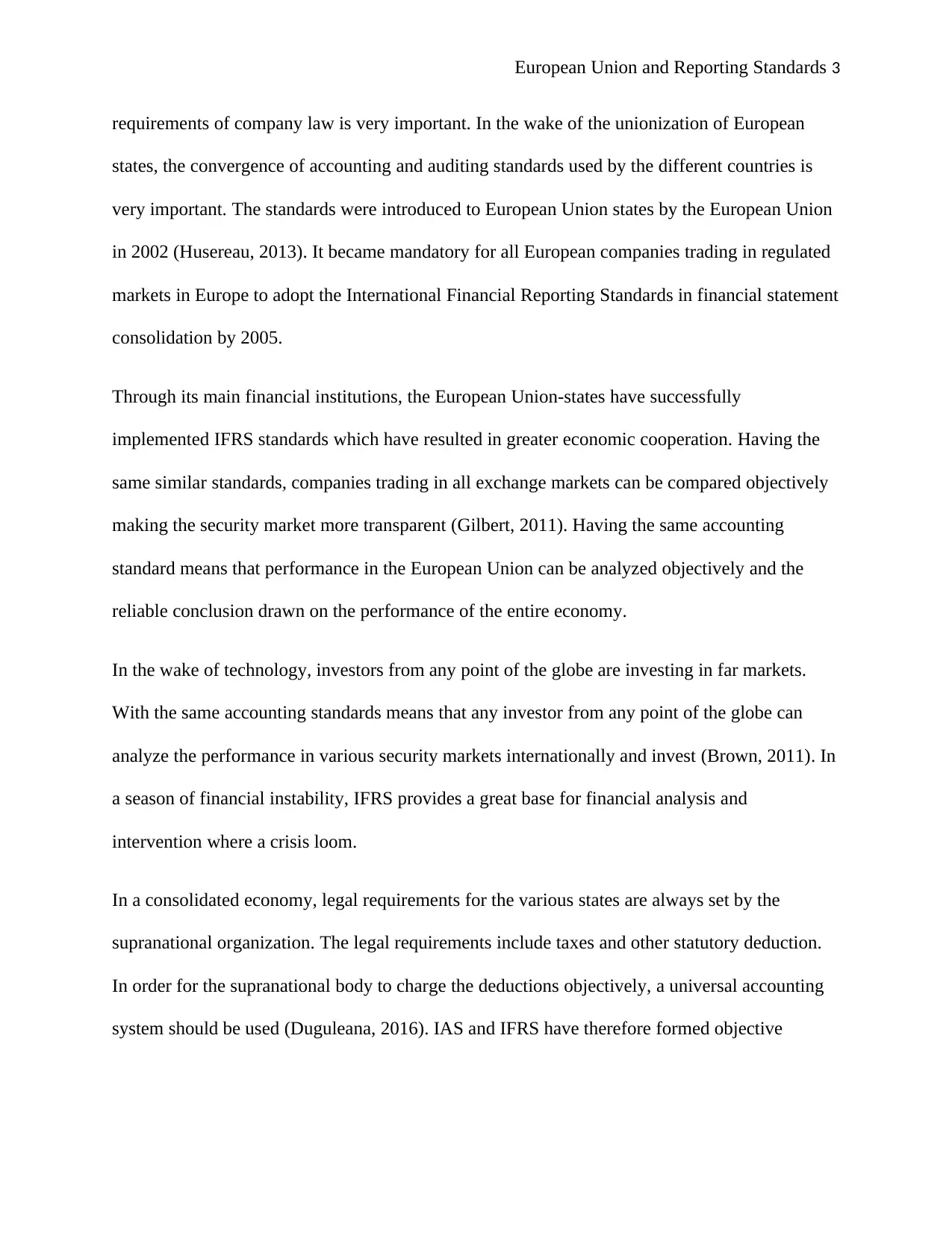

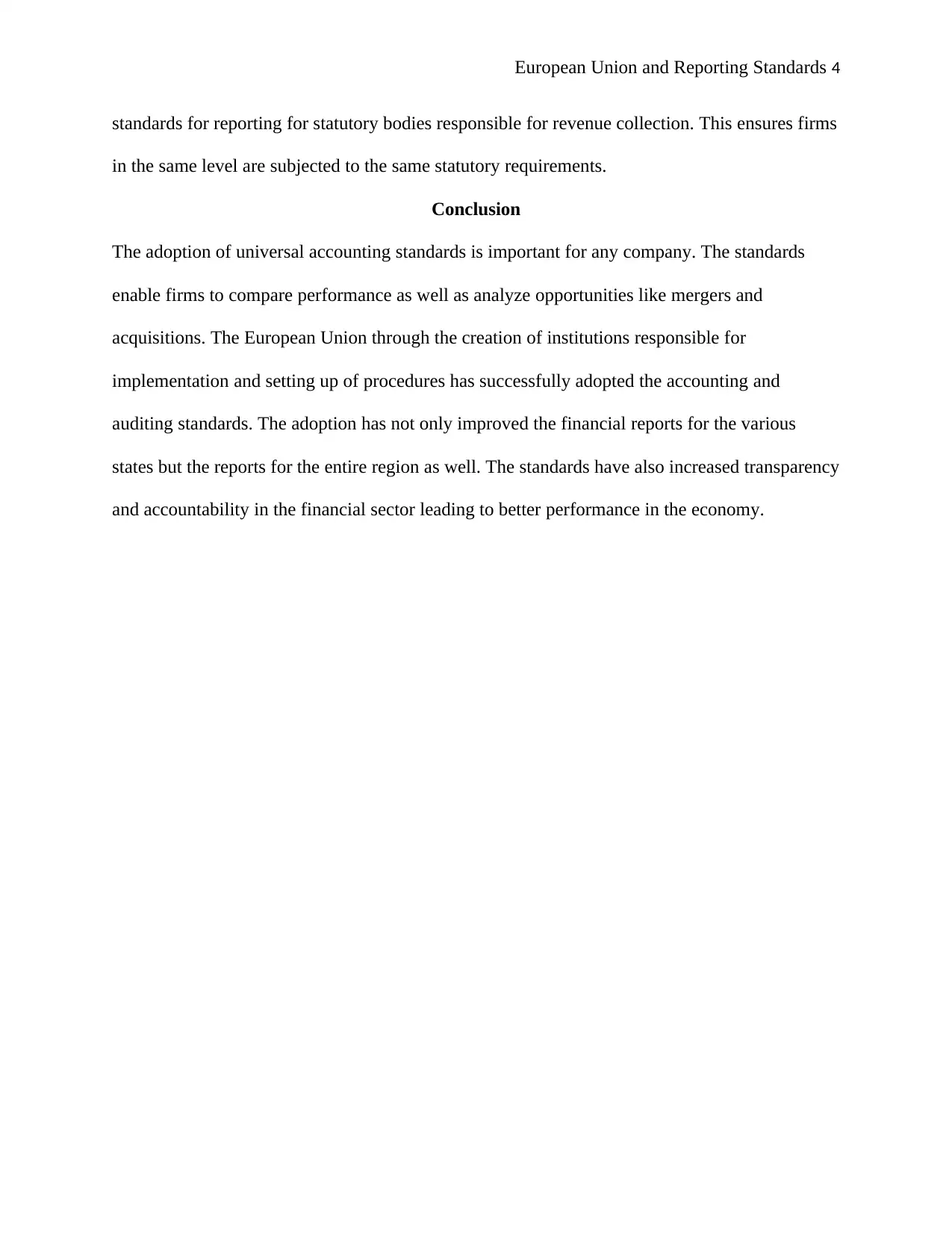
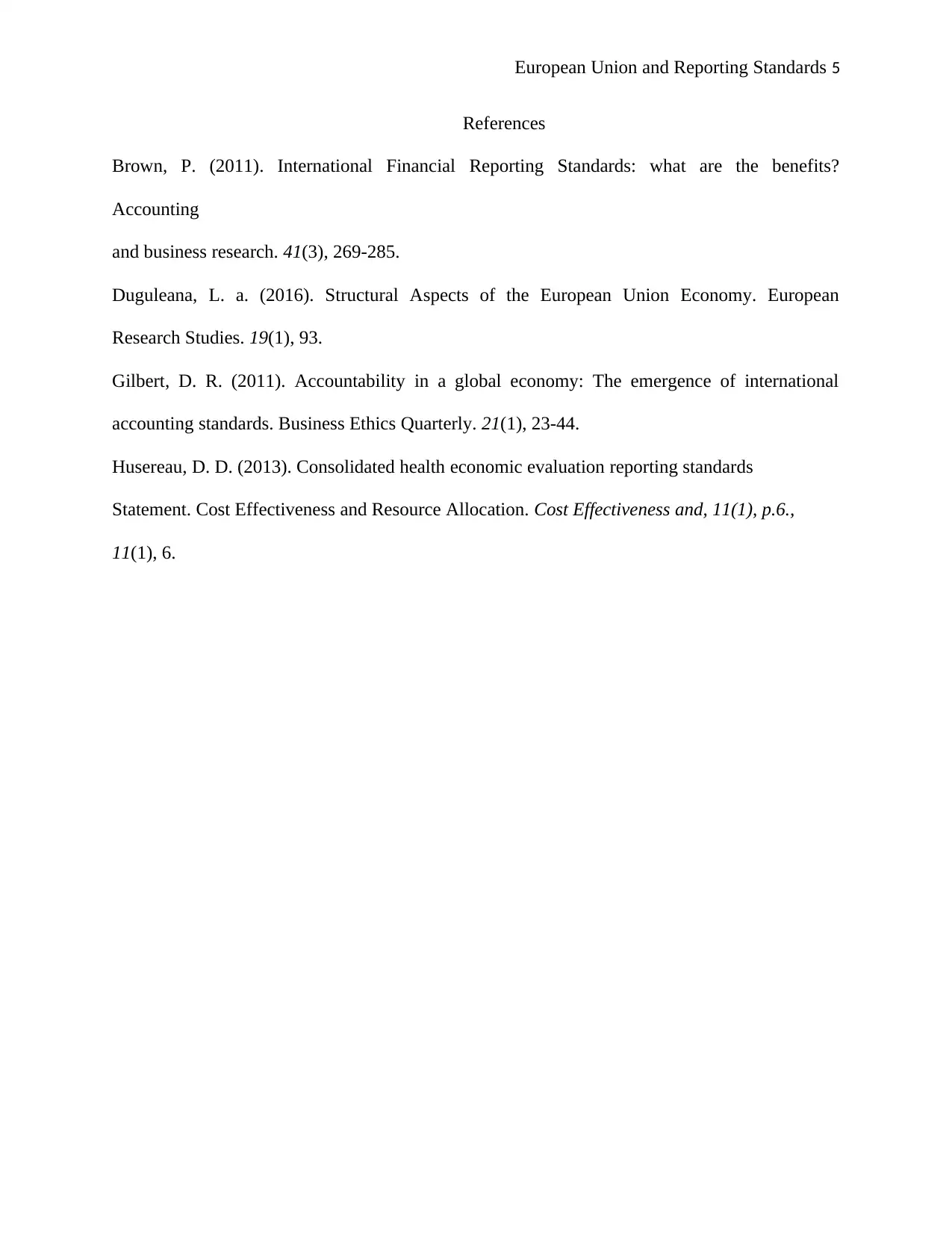






![[object Object]](/_next/static/media/star-bottom.7253800d.svg)